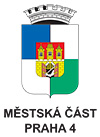Gerhard Altenbourg 1926-1989: Frühe Werke / Early Works
type: autorská
place of exhibition: Neue Nationalgalerie
date of exhibition: 2011/11/11 - 2012/03/04
note:
http://www.smb.museum/smb/kalender/details.php?lang=en&objID=36111
Continuing our 'Cabinet in the Gallery' exhibition series, the SMB's Kupferstichkabinett is about to present twenty drawings and prints by Gerhard Altenbourg, several large in scale, on display in the New National Gallery to coincide with the second showing of works from its permanent collection: 'Divided Heaven - the Collection 1945-1968'.
As a nonconformist who steadfastly disassociated himself from the cultural-political directives of the East German state, Gerhard Altenbourg (real name Gerhard Ströch) retreated to the town of Altenburg in Thuringia and created a singular oeuvre that encompassed more than 6000 works, primarily drawings and prints, making him one of the most important German artists in this field in the post-war period. Altenbourg's work is largely an expression of his Weltanschauung, a world view that was predominantly informed by diverse literary sources.
His beginnings as an artist were largely informed by the traumatic experiences of war that he endured as an eighteen year-old soldier, whose upbringing as the son of a Free Church pastor had been steeped in Christian ethics. His war experiences were to shape him for the rest of his life. His monumental drawing, Ecce homo, on display here, is testament of the deep mental scars inflicted on the young artist, who gave expression to his disgust at a civilization perverted by war by depicting the threateningly chaotic insides of the portrayed male body, disfigured by wounds and scars: in effect by 'skinning' it alive. This unusual and striking drawing was presented to the Berlin Kupferstichkabinett as a permanent loan from the Ernst von Siemens Kunststiftung in 2008.
Altenbourg never overtly attacked the GDR in his art; his work is generally unpolitical in nature, and can only be seen as 'subversive' by connotation, in that it circumvents the official expectations placed on art to serve as a tool in developing the 'socialist personality' and socialist state. In an interview from 1987 the artist stated: 'There is no political thinking in my case, because my thinking goes beyond social forms. Both under socialism and under capitalism you are born and you die. But in death, the ego is utterly alone, at that moment socialism has nothing to offer to help it, and neither has the free market.'
Gerhard Altenbourg 1926-1989: Frühe Werke / Early Works
| person | born |
| Altenbourg Gerhard | 22. 11. 1926 |
Gerhard Altenbourg 1926-1989: Frühe Werke / Early Works
| institution, city, address |
| Kupferstichkabinett, Berlín (Berlin), Matthäikirchplatz 8 (Kulturforum Potsdamer Platz) |
| Staatliche Museen zu Berlin - Stiftung Preußischer Kulturbesitz, Berlín (Berlin), Stauffenbergstraße 41 (Generaldirektion) |











